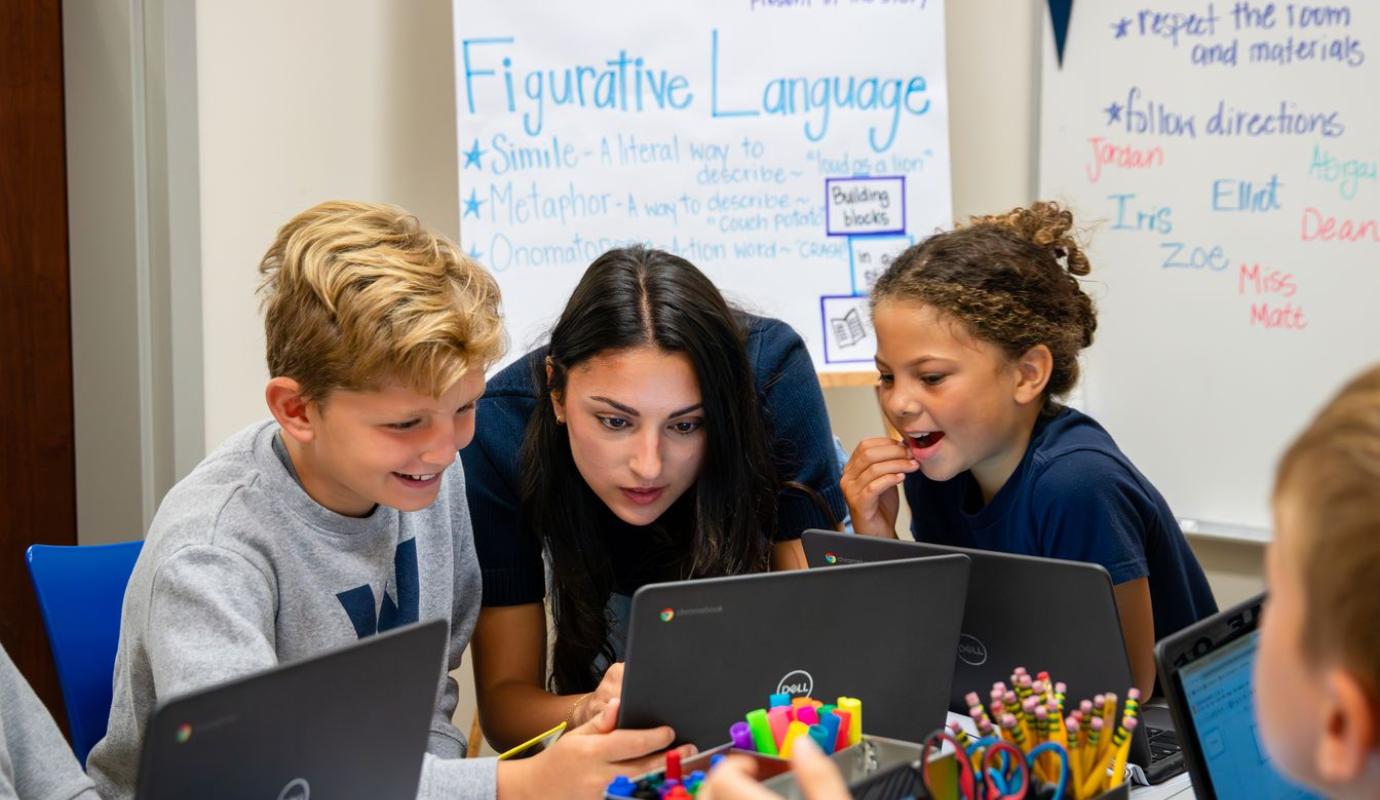At Wellington, assessments are designed to support children, not define them. We know each child brings unique talents, interests, and rhythms of learning to the classroom. Assessments give teachers useful snapshots of progress, which, together with daily observation, help us see the whole child.
In early childhood, teachers use authentic assessments such as photo documentation, portfolios, and checklists to capture growth in real-world play and exploration. These tools highlight not only literacy and math foundations but also creativity, problem solving, collaboration, and resilience. As students move into prekindergarten and kindergarten, teachers may add early literacy measures such as Heggerty and DIBELS (Dynamic Indicators of Basic Early Literacy Skills) alongside classroom work.
Assessments help faculty create differentiated instruction groups
By grades 1-4, assessments expand to include curriculum-based measures in reading and math and benchmark assessments such as MAP (Measures of Academic Progress). Results from all of these tools guide small-group, differentiated instruction, ensuring every child is both challenged and supported.
Most importantly, assessments are never viewed in isolation; they are always paired with the deep knowledge our teachers have of their students as individuals.
Section of DIBELs assessment
